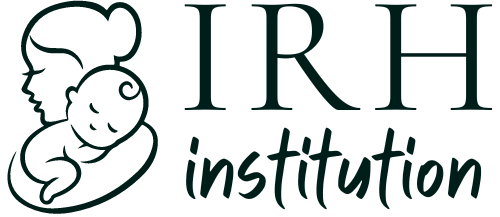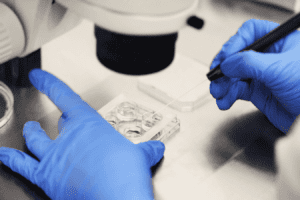Importance of Proper Menstrual Hygiene
Menstruation is a natural and essential part of life for women, but maintaining proper hygiene during this time is crucial for overall health and well-being. While the topic may seem basic, many women are unaware of the full impact that menstrual hygiene has on their reproductive health. Poor hygiene practices can lead to infections, discomfort, and long-term health issues, making it vital to adopt the right habits.
Here’s why hygiene during menstruation matters—and how you can take steps to protect your health during this time.
Why Menstrual Hygiene Matters
- Preventing Infections Menstruation is a time when the body is more vulnerable to infections. Bacteria thrive in warm, moist environments, and without proper hygiene, there is an increased risk of developing infections like bacterial vaginosis, yeast infections, or urinary tract infections (UTIs). A study published in the International Journal of Reproductive Medicine found that women who practiced improper menstrual hygiene were at a higher risk of reproductive tract infections (RTIs) compared to those with good hygiene habits (Deshpande et al.,2018).
- Maintaining Vaginal Health Your menstrual cycle can naturally change the pH levels of the vaginal environment, making it easier for harmful bacteria to multiply. Good hygiene practices, such as changing sanitary products regularly, can help maintain a healthy balance and prevent unpleasant odors or discomfort.
- Reducing the Risk of Skin Irritation Using the wrong products or leaving pads or tampons on for too long can cause rashes or irritation. While these problems are common, they can easily be avoided by selecting breathable, hypoallergenic menstrual products and staying consistent with product changes.
Best Hygiene Practices During Menstruation
- Change Your Products Regularly: Whether you’re using pads, tampons, or menstrual cups, make sure to change them every 4-6 hours. This prevents bacterial growth and reduces the risk of infections and odors.
- Choose the Right Products: Opt for organic, chemical-free pads or tampons if you have sensitive skin or are prone to irritation. Menstrual cups are also an excellent eco-friendly option that reduces the need for frequent changes while maintaining hygiene.
- Wash Properly: Wash your genital area at least twice a day with warm water. Avoid using harsh soaps or scented products, as they can disrupt the natural balance of bacteria and lead to irritation.
- Wear Breathable Clothing: Tight or synthetic fabrics can increase the risk of irritation and infection. During menstruation, opt for breathable cotton underwear to allow airflow and reduce moisture buildup.
Scientific Evidence Supporting Good Hygiene
A study conducted in rural India highlighted the significant health risks associated with poor menstrual hygiene management (MHM). Women who did not follow basic hygiene practices during menstruation were more likely to experience reproductive health issues, including increased rates of infections and infertility (Borkar et al., 2022). Research from the Journal of Global Health Reports also emphasizes that educating women on proper menstrual hygiene can significantly reduce the incidence of infections and improve overall reproductive health (Hennegan et al., 2019).
Why It’s About More Than Just Hygiene
Caring for yourself during menstruation is about more than just preventing infections—it’s about self-empowerment. Feeling fresh and comfortable during your period can boost your confidence and improve your overall quality of life. When you adopt good menstrual hygiene practices, you’re not only protecting your body today but also safeguarding your future reproductive health.
Making a Positive Change for Your Health
At IRH we believe that educating women about menstrual health is an essential part of fertility care. Menstrual hygiene is a vital aspect of reproductive health that shouldn’t be overlooked. By taking simple steps to improve your hygiene routine during your period, you can prevent infections, maintain comfort, and keep your reproductive system in optimal health.
Your health is in your hands—start making positive changes today! For more personalized advice on how to manage your reproductive health, visit us at IRH. We’re here to support you every step of the way.
References
(Proper Hygiene During Menstruation)
Borkar, S. K., Borkar, A., Shaikh, M. K., Mendhe, H., Ambad, R., & Joshi, A. (2022). Study of Menstrual Hygiene Practices Among Adolescent Girls in a Tribal Area of Central India. Cureus, 14(10), e30247. https://doi.org/10.7759/cureus.30247
Deshpande, T. N., Patil, S. S., Gharai, S. B., Patil, S. R., & Durgawale, P. M. (2018). Menstrual hygiene among adolescent girls – A study from urban slum area. Journal of family medicine and primary care, 7(6), 1439–1445. https://doi.org/10.4103/jfmpc.jfmpc_80_18
Hennegan, J., Shannon, A. K., Rubli, J., Schwab, K. J., & Melendez-Torres, G. J. (2019). Women’s and girls’ experiences of menstruation in low- and middle-income countries: A systematic review and qualitative metasynthesis. PLoS medicine, 16(5), e1002803. https://doi.org/10.1371/journal.pmed.1002803



